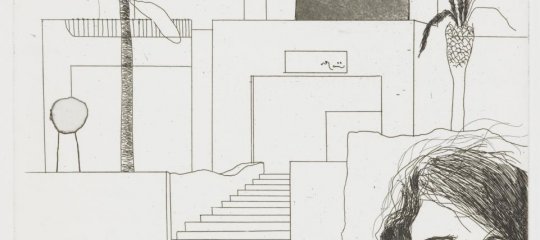Ποίηση της δικτατορίας (1967 - 1974)
Από «τα Τραγούδια του Αγώνα»
Στίχοι Μάνου Ελευθερίου, Αλέκου Παναγούλη, Μάνου Ελευθερίου και Μίκη Θεοδωράκη
1. Ποιος τη ζωή μου ποιος την κυνηγά
να την ξεμοναχιάσει μες στη νύχτα;
Ουρλιάζουν και σφυρίζουν φορτηγά
σαν ψάρι μ’ έχουν πιάσει μες στα δίχτυα.
Για κάποιον μες στο κόσμο είν’αργά
Ποιος τη ζωή μου, ποιος την κυνηγά;
Ποιος τη ζωή μου ποιος παραφυλά
στου κόσμου τα στενά ποιος σημαδεύει;
Πού πήγε αυτός που ξέρει να μιλά
που ξέρει πιο πολύ και να πιστεύει;
2.
(στο Νικηφόρο Μανδηλαρά)
Μαθαίνοντας το θάνατό σου δεν μπόρεσα να κλάψω.
Στριφογύριζα στο κρεβάτι του νοσοκομείου
Θυμόμουνα την τελευταία μας συνάντηση.
«Δεν θα τολμήσουν» έλεγες.
«Δεν έχουν άλλο δρόμο » σ’ απαντούσα.
«Αυτός ο δρόμος θα’ναι ο τάφος τους» φώναζες με πίστη.
Ναι, Νικηφόρε, θα’ναι ο τάφος τους.
Ναι Νικηφόρε.
Αυτή την υπόσχεση σου δίνουμε
αντί για μνημόσυνο.
3.
(Η αυλή /Οδός Μπουμπουλίνας)
Σφυρίζει στην ταράτσα η ζωστήρα
σε παίρνουν και σε πάνε στην αυλή
ξωκλήσια και νησιά χωρίς αρμύρα
δε θα θυμάσαι πια μες στη ζωή.
Κλειστό και χαμηλό το καμαράκι
πριν από χρόνια θα΄ταν πλυσταριό
Μα εσύ μικρό παιδί παλληκαράκι
φαρμάκωσες ετούτο τον καιρό
μ΄ενα καρφί και μ’ένα καθρεφτάκι
τις φλέβες σου όταν έκοψες θαρρώ
Μιλώ στην Παναγιά και στο Χριστό
τα χρόνια σου μετρώ με τον καημό
μα πες μου αν έχει ο βασανιστής σου
αν έχει μάτια, στόμα και λαιμό.
4.
Διότι δεν συνεμορφώθην προς τας υποδείξεις.
Πέρα από το γαλάζιο κύμα, το γαλάζιο ουρανό
μια μανούλα περιμένει χρόνια τώρα να τη δω.
Διότι δεν συνεμορφώθην προς τας υποδείξεις.
Χρόνος μπαίνει, χρόνος βγαίνει, μες στο σύρμα περπατώ
θα περάσουν μαύρες μέρες δίχως να σε ξαναδώ.
Διότι δεν συνεμορφώθην προς τας υποδείξεις.
Αλικαρνασσός, Παρθένι, Ωρωπός, Κορυδαλλός
ο λεβέντης περιμένει της ελευθεριάς το φως.
Διότι δεν συνεμορφώθην προς τας υποδείξεις.
Η καταχώριση έγινε από το υλικό που έστειλε στις 17 Νοεμβρίου 2004 η Κυριακή Φραντζή και μπορεί να θεωρηθεί συνέχεια του υλικού που έστειλε η Αρετή Πότσιου. Αν υπάρχουν ιδέες και προτάσεις για την γλωσσική αξιοποίηση αυτού του υλικού, μπορείτε να τις στείλετε στις Φρυκτωρίες.










